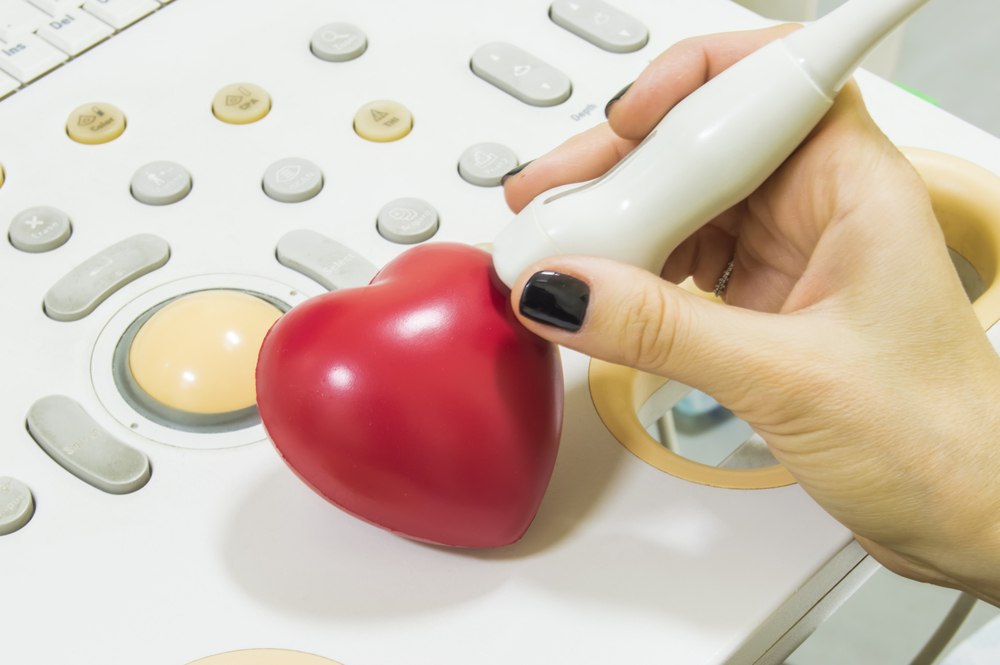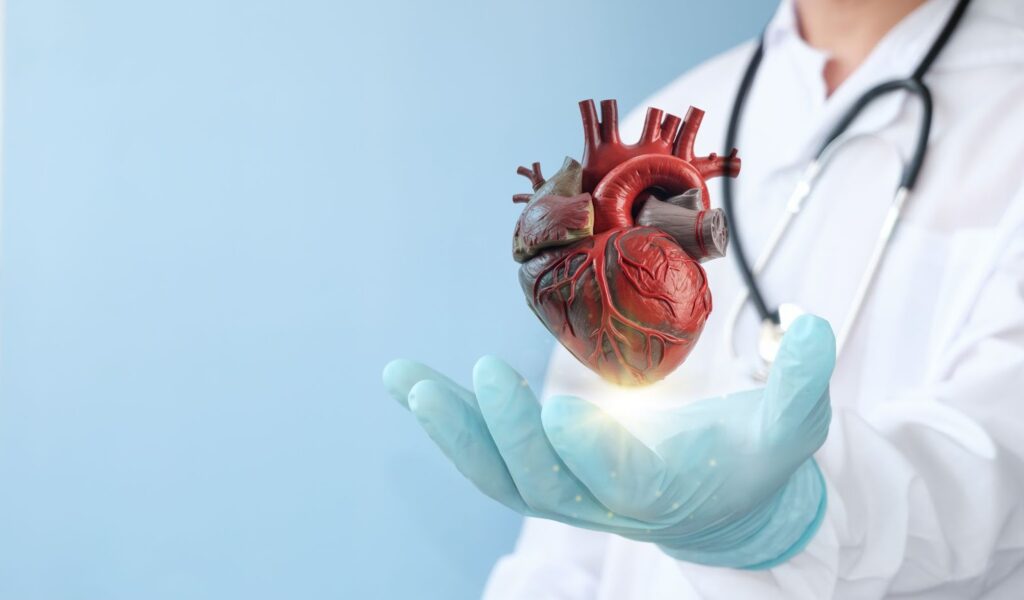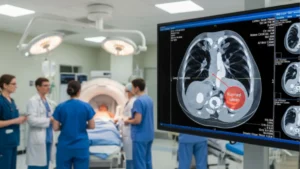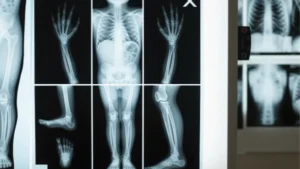Keeping your heart healthy is paramount to overall well-being. Early detection and management of heart conditions are crucial in preventing serious complications. Fortunately, advancements in medical technology have provided us with a powerful tool: cardiac imaging. These specialized tests offer a detailed view of your heart’s structure and function, aiding in diagnosis, treatment planning, and ultimately, promoting better heart health.
This blog post discusses heart imaging tests, explaining their importance, the different types available, and how they benefit your cardiovascular health. Whether you’re concerned about potential heart issues or simply want to be proactive about your well-being, this guide will empower you with the knowledge to discuss these tests with your doctor.
Importance of Heart Imaging Test in Diagnosis and Heart Health
Cardiac imaging plays a vital role in diagnosing and managing a wide range of heart conditions. These tests can reveal abnormalities in the heart’s structure, blood flow, and function, allowing doctors to detect problems early on, before symptoms even arise.
Early detection is key, as it enables prompt intervention and treatment, potentially preventing serious complications like heart attack and stroke. Furthermore, heart imaging tests or imaging tests for the heart assist in monitoring the effectiveness of ongoing treatment plans for existing heart conditions.
What are heart imaging tests?
Heart imaging tests, also known as cardiac imaging, encompass a variety of procedures that utilize different technologies to create detailed pictures of your heart. These images provide valuable insights into the size, shape, and function of your heart chambers and valves, as well as the blood flow through your coronary arteries. With this information, doctors can gain a comprehensive understanding of your heart’s health and identify any underlying issues.

Common Types of Heart Imaging Tests
There are several types of imaging in cardiology or types of scans for heart imaging, each with its own strengths and applications. Here’s a closer look at some of the most common cardiac imaging tests:
Echocardiogram (echo)
This painless procedure uses ultrasound waves to create real-time images of your heart. It’s a versatile test used to evaluate heart chamber size and function, valve movement, and blood flow.
Cardiac CT Scan
This imaging technique employs X-rays to generate detailed cross-sectional pictures of your heart and surrounding structures. A contrast dye may be injected to enhance the visibility of blood vessels. Cardiac CT scans are often used to detect coronary artery blockages and assess the risk of heart attack.
Nuclear Cardiac Stress Test
This test is an imaging stress test of the heart. It combines a radioactive tracer material with exercise or medication to evaluate blood flow to your heart muscle. Areas receiving insufficient blood flow will show up as abnormalities on the scan, helping diagnose coronary artery disease.
There are two main types: SPECT (Single-photon emission computed tomography) and PET (Positron emission tomography).
Cardiac MRI
This advanced imaging technique utilizes strong magnets and radio waves to create detailed pictures of your heart muscle, valves, and blood vessels. Unlike CT scans, it doesn’t involve radiation exposure. Cardiac MRI is valuable for assessing heart muscle damage, congenital heart defects, and abnormalities in heart rhythm.
Chest X-Ray
While not a primary diagnostic tool for heart disease, a chest X-ray can provide a general overview of your heart size and shape. It may be used to detect conditions like heart failure or enlargement of the heart chambers.
When is heart imaging performed?
Heart imaging tests are used in various situations to assess your heart health. Here are some common reasons why your doctor might recommend a heart imaging test:
Evaluating symptoms
If you experience chest pain, shortness of breath, palpitations, or other concerning symptoms, a heart imaging test can help identify the underlying cause.
Diagnosing heart disease
These tests play a vital role in diagnosing various heart conditions, including coronary artery disease, heart valve problems, heart failure, congenital heart defects, and arrhythmias (irregular heartbeats).
Monitoring existing conditions
If you have a pre-existing heart condition, heart imaging tests can be used to monitor its progression and assess the effectiveness of ongoing treatment.
Risk assessment
For individuals with risk factors for heart disease, such as high blood pressure, cholesterol, or family history, heart imaging tests can help evaluate their risk of developing heart problems in the future.
Pre-surgical evaluation
Before undergoing certain heart surgeries, doctors may use imaging tests to assess the heart’s anatomy and function in detail.

What conditions can heart imaging tests diagnose?
Heart imaging tests are incredibly versatile and can diagnose a wide range of heart conditions. Here are some of the most common conditions these tests can identify:
- Coronary artery disease (CAD): This is the narrowing or blockage of the arteries supplying blood to the heart muscle, often visualized through tests like cardiac CT scans.
- Heart valve problems: These tests can assess the function and structure of your heart valves, detecting abnormalities like stenosis (narrowing) or regurgitation (leakage).
- Heart failure: Imaging tests can reveal the size and pumping efficiency of your heart chambers, aiding in diagnosing heart failure.
- Congenital heart defects: These are structural abnormalities present at birth, and imaging tests can help identify their nature and severity.
- Arrhythmias (irregular heartbeats): While not directly diagnosing arrhythmias themselves, these tests can identify underlying heart abnormalities that might contribute to them.
- Myocarditis (heart muscle inflammation): Cardiac MRI is particularly valuable in detecting inflammation of the heart muscle.
- Pericarditis (inflammation of the sac surrounding the heart): Imaging tests can reveal fluid buildup around the heart, a potential sign of pericarditis.
- Aortic aneurysm (weakening and bulging of the aorta): Certain imaging tests, like CT scans, can detect an enlarged aorta that might be at risk of rupturing.
By providing detailed information about your heart’s structure and function, heart imaging tests empower doctors to diagnose a variety of heart conditions accurately and effectively.
Choosing the Right Type of Heart Imaging Test
While the final decision on the most suitable heart imaging test rests with your doctor, understanding the selection process can empower you to participate actively in your healthcare journey. Here’s a breakdown of the steps involved:
Step 1: Initial Consultation
- Discuss your symptoms: Be clear and detailed about any chest pain, shortness of breath, palpitations, or other concerning experiences you’ve been having.
- Provide your medical history: Share any past diagnoses, surgeries, or medications you’re currently taking.
- Highlight your risk factors: Mention any family history of heart disease, high blood pressure, cholesterol levels, or lifestyle habits like smoking that might increase your risk.
Consider consulting One Step Diagnostic for a streamlined experience in choosing the most suitable heart imaging test for your needs. Their team of qualified healthcare professionals and state-of-the-art technology ensure you receive a seamless and informative experience. They offer a variety of heart imaging tests in a comfortable and patient-centered environment.
Step 2: Doctor’s Evaluation
Based on the information you provide, your doctor will:
- Assess your overall health: This may involve a physical examination and reviewing your medical records.
- Identify potential concerns: Your doctor will consider your symptoms, history, and risk factors to determine the most likely cause of your concerns.
Step 3: Selecting the Appropriate Test
Informed by the findings from step 2, your doctor will consider the following factors when choosing the most suitable heart imaging test:
- The specific concern: Different tests excel at visualizing different aspects of the heart. For example, an echocardiogram is ideal for evaluating heart valve function, while a cardiac CT scan is better suited for detecting coronary artery blockages.
- Your medical history: Certain pre-existing conditions or limitations might influence the choice of test. For instance, if you have claustrophobia, an MRI might not be the best option.
- Availability and accessibility: Your doctor will consider the availability of specific tests at their facility or ones covered by your insurance.
Step 4: Discussion and Collaboration
Your doctor will explain the rationale behind the recommended test, including its benefits, limitations, and any potential risks involved. This is an excellent opportunity to ask questions and clarify any doubts you may have.
Benefits of Heart Imaging Tests
Heart imaging tests offer several advantages for your cardiovascular health. Let’s dig deeper into the ways these tests can significantly benefit your cardiovascular health:
Early detection and diagnosis of heart disease
Early identification of heart problems allows for prompt intervention and treatment, potentially preventing serious complications.
Improved treatment planning and monitoring
Detailed images guide doctors in developing personalized treatment plans and monitoring their effectiveness over time.
Potentially reducing the risk of heart attack and stroke
Early detection and treatment of heart disease significantly reduce the risk of life-threatening events like heart attacks and strokes.
Peace of mind
Knowing your heart health status through imaging tests can provide valuable peace of mind. If a test reveals no abnormalities, it reduces anxiety and allows you to focus on maintaining a healthy lifestyle.

How much does a heart imaging test cost?
The cost of a heart imaging test can vary significantly depending on several factors, making it difficult to give a definitive answer. Here’s a breakdown of what influences the price:
Type of Test
Different tests have varying costs. Generally, more complex procedures using advanced technology tend to be more expensive. For instance, an echocardiogram is typically less expensive than a cardiac CT scan.
Facility
Hospitals may charge more compared to outpatient imaging centers for the same test.
Location
Costs can differ geographically. Prices may vary between states or even within the same city.
Insurance Coverage
This plays a major role. Your health insurance plan will determine coverage for specific tests, deductibles, and co-pays.
Empowering Your Heart Health Journey with One Step Diagnostic
Understanding the role of heart imaging tests equips you to partner effectively with your doctor in safeguarding your heart health. If you have any concerns or questions about these tests, don’t hesitate to discuss them with your doctor. Remember, early detection is key, and advancements in cardiac imaging empower you to take charge of your heart health.
One Step Diagnostic is committed to providing patients with convenient access to high-quality diagnostic services, including advanced heart imaging tests. They believe in empowering individuals to take a proactive approach to their health and well-being. Contact them today!



